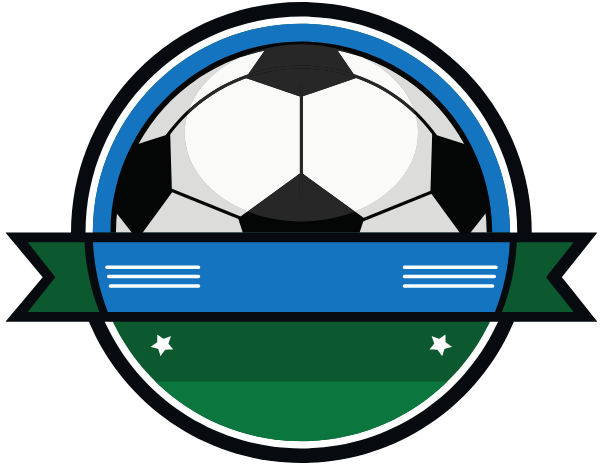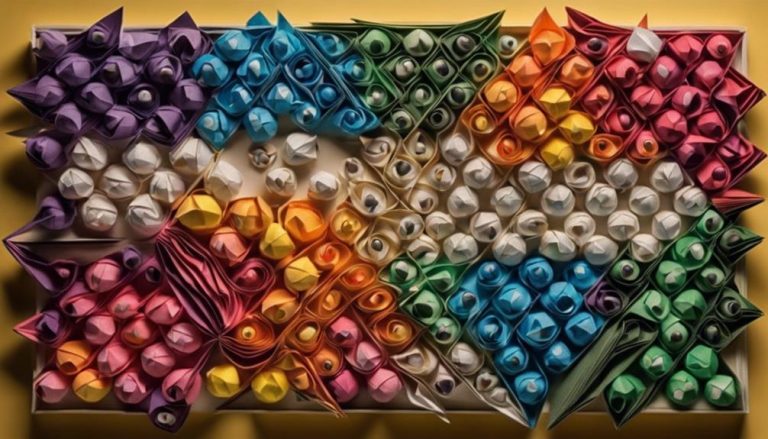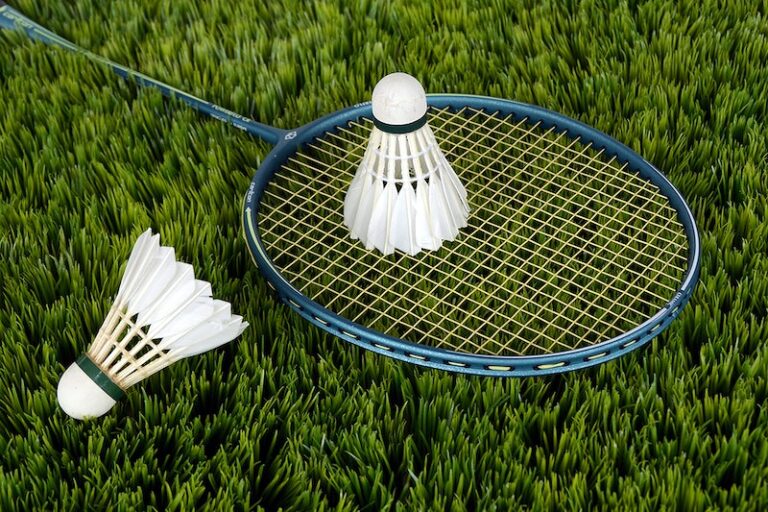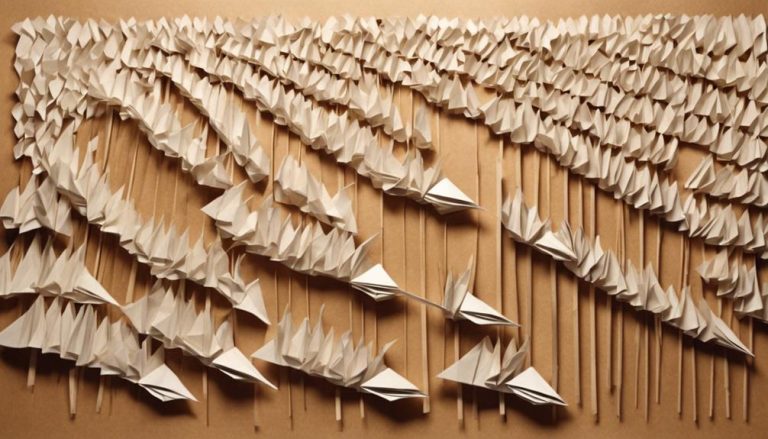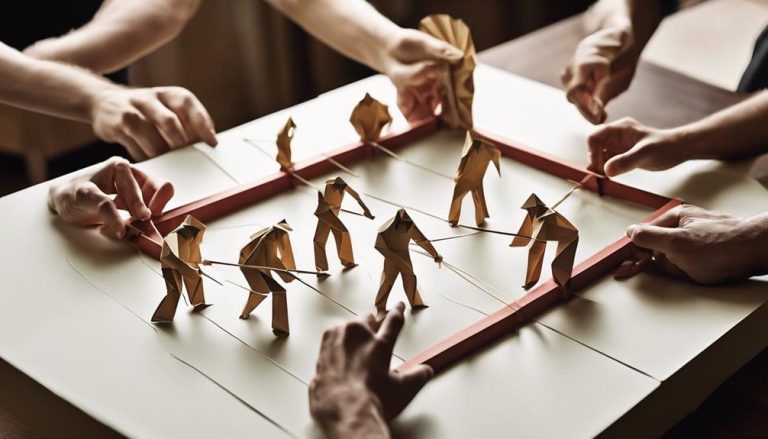General Rules of Gaelic Football
In Gaelic Football, aim to score by kicking over the crossbar for a point or into the goal for a goal. Shooting accuracy is crucial for points and goals. Refine your skills for excellence. Precision is essential. Defend well to stop opponents from scoring. Player positions like full-backs and forwards have unique roles. Work as a team for offensive plays. Improve ball handling with catching, soloing, and passing techniques. Learn proper tackling and fair play. Referees manage fouls and player safety. Equip yourself for durability and performance. Master the basics, and your Gaelic Football game will soar to new heights.
Scoring in Gaelic Football
In Gaelic Football, scoring is achieved by either kicking the ball over the crossbar for a point or into the goal for a goal. Scoring techniques vary, with players needing shooting accuracy to secure points or goals. To excel in Gaelic Football, refining your shooting skills is vital. Whether you opt for a point or aim for a goal, precision is key. Defensive strategies play a significant role in thwarting opponents' scoring attempts. Teams must master the art of goalkeeping to protect their own goal. Goalkeepers require lightning reflexes and keen anticipation to block shots effectively.
Understanding the intricacies of scoring in Gaelic Football empowers you on the field. By grasping the importance of shooting accuracy and defensive strategies, you enhance your overall gameplay. Whether you're aiming for a point or a goal, your skills and decision-making play a pivotal role in securing victories. Remember, in Gaelic Football, each point and goal is a step closer to triumph.
Player Positions and Roles
Investigating the diverse player positions and roles in Gaelic Football reveals the intricate tapestry that shapes team dynamics and gameplay strategies. Defensive strategies and positioning are vital components in Gaelic Football, with players such as full-backs, corner-backs, and sweepers responsible for thwarting the opposition's advances and protecting the goal. These players must work in unison, anticipating the opponent's moves and creating a solid defensive line to prevent scoring opportunities.
On the other hand, offensive plays in Gaelic Football heavily rely on teamwork and coordination. Forwards, half-forwards, and midfielders collaborate to create scoring chances, using strategic movements and precise passing to outmaneuver the defense. The full-forward is often the focal point of attack, utilizing strength and agility to secure goals and points for the team.
Understanding the specific roles and responsibilities of each position is essential for players to excel in Gaelic Football. By mastering defensive strategies, positioning, and offensive teamwork, individuals can contribute effectively to their team's success on the field.
Basic Ball Handling Techniques
Ready to enhance your Gaelic Football game? Mastering the art of catching the ball, perfecting your soloing skills, and honing your passing techniques are vital components for success on the field. These foundational ball handling techniques will not only improve your gameplay but also contribute to your team's overall performance. So grab your gear, hit the field, and let's work on refining those essential skills!
Catching the Ball
Mastering the art of catching the ball is vital in Gaelic Football as it forms the foundation of basic ball handling techniques. Hand positioning and technique are essential to secure a successful catch. Your eye coordination and timing must be precise to anticipate the ball's trajectory accurately. To enhance your catching abilities, focus on the following:
- Soft Hands: Make sure your hands are relaxed to cushion the impact of the ball.
- Focus and Anticipation: Keep your eyes fixed on the ball and predict its path.
- Body Positioning: Position your body to create a strong base for the catch.
- Confidence: Approach each catch with confidence and commitment.
Soloing Skills
To further hone your skills in Gaelic Football, focusing on mastering the art of soloing is vital for enhancing your basic ball handling techniques. Soloing involves bouncing the ball off the ground and back into your hands while on the move. It requires advanced footwork to control the ball effectively, showcasing your agility and coordination. Developing tactical strategies for soloing can help you outmaneuver opponents and create scoring opportunities. Mental preparation is essential to stay focused and make split-second decisions during soloing situations. Additionally, physical conditioning plays a significant role in improving your endurance and strength for executing soloing skills throughout the game. By dedicating time to perfecting soloing techniques, you can elevate your performance on the field.
Passing Techniques
Enhancing your Gaelic Football skills involves refining your passing techniques as part of mastering basic ball handling skills. To become a proficient passer, focus on footwork drills to improve agility and speed on the field. Passing accuracy is essential, so practice different types of passes to enhance your skills further. When it comes to offensive strategies, understanding how to read the game and make split-second decisions will elevate your passing game. On the defensive end, learning tactics to intercept passes and disrupt the opponent's flow of play can give your team a significant advantage. Perfect your passing techniques, and you'll become a valuable asset in any Gaelic Football match.
Rules for Tackling and Challenges
When participating in Gaelic Football, understanding the rules for tackling and challenges is essential for players to navigate the game effectively and safely. In Gaelic Football, tackling techniques and defensive strategies play a vital role in gaining possession of the ball and preventing the opposing team from advancing towards the goal. Players often use shoulder-to-shoulder challenges or well-timed interceptions to disrupt their opponents' progress.
Fair play and sportsmanship aspects are highly valued in Gaelic Football. While physicality is a part of the game, players are expected to tackle within the rules, avoiding dangerous or overly aggressive moves. Respecting the opponent's safety is paramount, and players should aim to compete fiercely but fairly.
Understanding Fouls and Penalties
Alright, let's get into the nitty-gritty of fouls and penalties in Gaelic Football. Knowing the common types of fouls, understanding how penalty kicks work, and being aware of the referee's pivotal role in managing fouls are key aspects to master. So, buckle up and get ready to unravel the intricacies of these vital elements in the game.
Common Foul Types
To better understand the rules of Gaelic Football, it is essential to familiarize yourself with the common foul types and the corresponding penalties in the game. When it comes to referee decisions and player reactions, understanding these foul types is vital for maintaining fair play and sportsmanship on the field. Here are some common foul types to watch out for:
- High Tackles: Endangering an opponent by tackling above the shoulders.
- Tripping: Using the leg to trip an opponent.
- Pushing or Pulling: Illegally pushing or pulling an opponent.
- Verbal Abuse: Using offensive language towards players, officials, or spectators.
Penalty Kick Procedure
Understanding the common foul types in Gaelic Football is foundational for grasping the Penalty Kick Procedure and how different infractions result in specific penalties. When it comes to penalty kicks, the positioning and technique of the goalkeeper play an essential role. Goalkeepers must anticipate the striker's move, stay agile, and make strategic decisions to block the shot effectively. On the other hand, the defensive team needs to form a solid wall to block the penalty kick. The defensive wall's formation and strategy are important in creating a barrier that makes it challenging for the striker to score. By understanding these dynamics, players can improve their penalty kick execution and defensive tactics, ultimately enhancing their overall performance on the field.
Referees Role in Fouls
Navigating the fast-paced game of Gaelic Football hinges heavily on the referees' sharp eye for detecting fouls and implementing penalties promptly and fairly. When it comes to the referees' role in fouls, there are vital aspects to contemplate:
- Referee communication: Clear and efficient communication from referees keeps players informed and maintains order on the field.
- Player discipline: Referees play a pivotal role in enforcing player discipline, ensuring that the game is played with sportsmanship and respect.
- Video review: Utilizing video review helps referees make precise decisions, reducing the likelihood of contentious calls.
- Controversial calls: Despite efforts to be fair, contentious calls can still arise, adding an element of unpredictability to the game.
Understanding how referees handle fouls is essential for players and fans alike, shaping the dynamics of each match.
Substitutions and Timekeeping
When it comes to Gaelic Football, the rules governing substitutions and timekeeping play an essential role in the flow and fairness of the game. Proper time management is vital in Gaelic Football to make sure that matches progress smoothly and fairly. Each half typically lasts for 30 minutes, with additional time added for stoppages. The referee is responsible for keeping track of time and signaling when the game should start, stop, and end.
Player substitutions are another key aspect of Gaelic Football. Teams are allowed to make up to five substitutions in a match, providing opportunities for fresh legs and tactical changes. Substitutions can only occur when the ball is out of play and with the referee's permission. It's important for teams to strategize their substitutions effectively to maintain momentum and adapt to the flow of the game.
Key Equipment and Attire
To excel in Gaelic Football, having the right key equipment and attire is essential for top performance on the field. When it comes to your gear, remember that maintenance and proper fitting are important. Here are some tips to help you make the best choices:
- Equipment maintenance: Keeping your gear in top condition not only prolongs its lifespan but also guarantees your safety on the field. Regularly check for any wear and tear, and address it promptly to avoid any mishaps during gameplay.
- Proper fitting: Ill-fitted equipment can hinder your performance and increase the risk of injuries. Make sure your boots, shin guards, and helmet fit you correctly to maximize comfort and mobility.
- Quality vs. budget options: While it can be tempting to opt for budget-friendly gear, investing in higher quality equipment can offer better durability and performance. Consider your playing frequency and level to determine the best balance between quality and budget.
Having the right equipment and attire tailored to your needs can give you the confidence to play your best game.
Frequently Asked Questions
Can Players Wear Jewelry While Playing Gaelic Football?
You shouldn't wear jewelry while playing Gaelic football due to safety concerns and distraction risks. It's better to focus on your performance rather than fashion choices. Avoid potential accidents and stay sharp on the field.
Are There Any Restrictions on the Size or Weight of the Ball Used in Gaelic Football?
When it comes to the ball in Gaelic football, there are specific guidelines to follow. Ball specifications are important, and equipment regulations guarantee fair play. Stay mindful of these details for a smooth game.
Is There a Limit to the Number of Players a Team Can Have on the Field at One Time?
Yes, there is a limit to the number of players a team can have on the field at once in Gaelic football. Substitution rules allow for player rotations, ensuring teams adhere to the required player count.
Can Players Switch Positions During a Gaelic Football Match?
Yes, in Gaelic football, players can switch positions during a match. This tactical advantage allows for position flexibility and strategic adaptation. Player substitutions are key for teams to adjust and optimize their gameplay.
Are There Any Specific Rules Regarding the Use of Mouthguards in Gaelic Football?
To guarantee player safety and proper mouthguard upkeep, it's crucial to adhere to the specific regulations regarding mouthguards in Gaelic football. By using them correctly, you can safeguard your teeth and lessen the chances of injuries.
